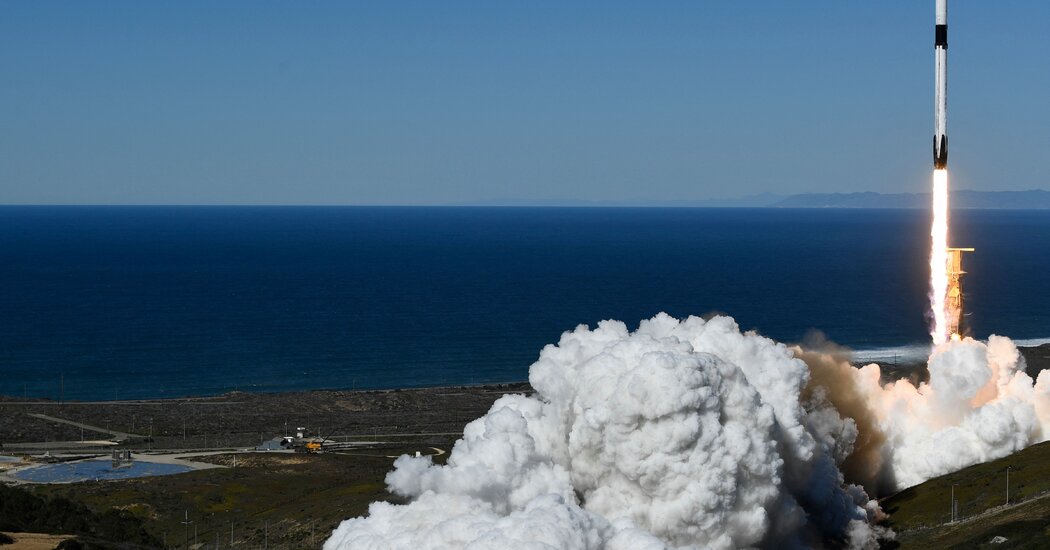The Pentagon needs what the company offers to compete with China even as it frets over its potential for dominance and the billionaire’s global interests.
The breakthrough came last month, about 600 miles above Earth.
For the first time, the Pentagon’s Space Development Agency used lasers transmitting data at light speed to communicate between military satellites on a secure network, making it easier to track enemy missiles and if necessary shoot them down.
It was a milestone not only for the Pentagon. This was a defining moment for a certain up-and-coming military contractor that had built key parts of this new system: Elon Musk’s SpaceX.
SpaceX over the last year started to move in a big way into the business of building military and spy satellites, an industry that has long been dominated by major contractors like Raytheon and Northrop Grumman as well as smaller players like York Space Systems.
This shift comes as the Pentagon and U.S. spy agencies are preparing to spend billions of dollars to build a series of new constellations of low-earth-orbit satellites, much of it in response to recent moves by China to build its own space-based military systems.
SpaceX is poised to capitalize on that, generating a new wave of questions inside the federal government about the company’s growing dominance. Concerns also have emerged over the extent of that governmental reliance, given Mr. Musk’s global business operations, including with China, and his apparent interactions with government officials in Russia.
“The complication is that you’re incredibly dependent on a company that is privately held, meaning we have very little visibility into their finances,” Todd Harrison, a former space industry executive who is now a senior fellow at the American Enterprise Institute, said. “And it is controlled by the richest man in the world, who has gotten heavily involved in the politics and heavily involved with some foreign leaders who are adversaries of the United States.”
